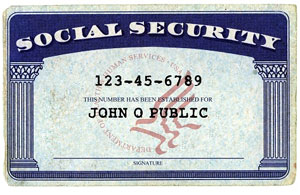
Dying without a Will is called dying “intestate.” What this means is that your intentions as to who inherits your assets, who administers your estate, and who acts as guardians for any young children are determined by the Commonwealth of Massachusetts.
 It’s something no parent likes to think about, but accordingly there’s no better time than the New Year to handpick legal guardians who can raise your children if something happens to you.
It’s something no parent likes to think about, but accordingly there’s no better time than the New Year to handpick legal guardians who can raise your children if something happens to you. If you have just gone through the emotional and financial upheaval of a divorce, the last thing on your mind is contacting an attorney to make changes to your estate plan. Yet, it is essential that you review and update your estate documents to reflect this major life change. During the divorce process, you likely dealt with property division, and possibly child custody and spousal support. Your estate plan should reflect changes. Otherwise, your assets could be distributed in ways you neither expected nor intended.
If you have just gone through the emotional and financial upheaval of a divorce, the last thing on your mind is contacting an attorney to make changes to your estate plan. Yet, it is essential that you review and update your estate documents to reflect this major life change. During the divorce process, you likely dealt with property division, and possibly child custody and spousal support. Your estate plan should reflect changes. Otherwise, your assets could be distributed in ways you neither expected nor intended.  A few years ago I wrote a blog about
A few years ago I wrote a blog about  Millions of people are affected by some form of dementia. Unfortunately, many dementia patients don’t have all their estate planning affairs in order before the symptoms begin to appear. This is another good reason to speak with an elder law attorney now, rather than putting off such a discussion.
Millions of people are affected by some form of dementia. Unfortunately, many dementia patients don’t have all their estate planning affairs in order before the symptoms begin to appear. This is another good reason to speak with an elder law attorney now, rather than putting off such a discussion. Elder abuse comes in many forms. An overwhelming majority of it is financial abuse. If you have an elder parent or family member who lives alone, he or she may be at risk of a new wave of telemarketing fraud targeting the elderly.
Elder abuse comes in many forms. An overwhelming majority of it is financial abuse. If you have an elder parent or family member who lives alone, he or she may be at risk of a new wave of telemarketing fraud targeting the elderly. After the passing of a loved one, a common question by one of the children is: Can I get paid executor fees? If you are appointed the executor, or personal representative (as it is called in Massachusetts), of a deceased loved one’s estate, you may face many challenges. There are a number of duties for which you will be responsible, including gathering and securing the deceased’s assets and household belongings, paying debts and taxes, filing court paperwork, and making distributions to beneficiaries. The process can be time-consuming, complex, and emotionally draining. Even when everything runs smoothly, questions are likely to arise.
After the passing of a loved one, a common question by one of the children is: Can I get paid executor fees? If you are appointed the executor, or personal representative (as it is called in Massachusetts), of a deceased loved one’s estate, you may face many challenges. There are a number of duties for which you will be responsible, including gathering and securing the deceased’s assets and household belongings, paying debts and taxes, filing court paperwork, and making distributions to beneficiaries. The process can be time-consuming, complex, and emotionally draining. Even when everything runs smoothly, questions are likely to arise.
 We often talk about the documents that can help protect your family, the documents that can ensure your wishes are carried out if you are unable to make decisions for yourself. But today I would like to discuss the step that comes before the forms – the discussion. . . The Talk.
We often talk about the documents that can help protect your family, the documents that can ensure your wishes are carried out if you are unable to make decisions for yourself. But today I would like to discuss the step that comes before the forms – the discussion. . . The Talk.  Have you ever heard of Filial Responsibility Laws? Well you’re not alone, but a recent case in Pennsylvania is getting a lot of us to take a second look at these rarely used and even more rarely discussed laws.
Have you ever heard of Filial Responsibility Laws? Well you’re not alone, but a recent case in Pennsylvania is getting a lot of us to take a second look at these rarely used and even more rarely discussed laws.
